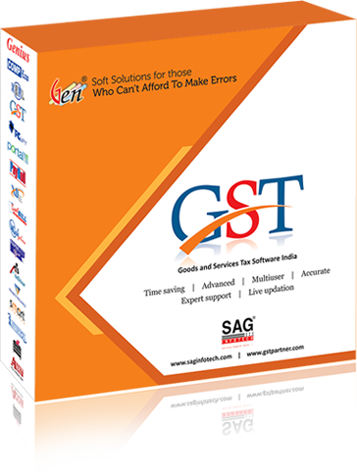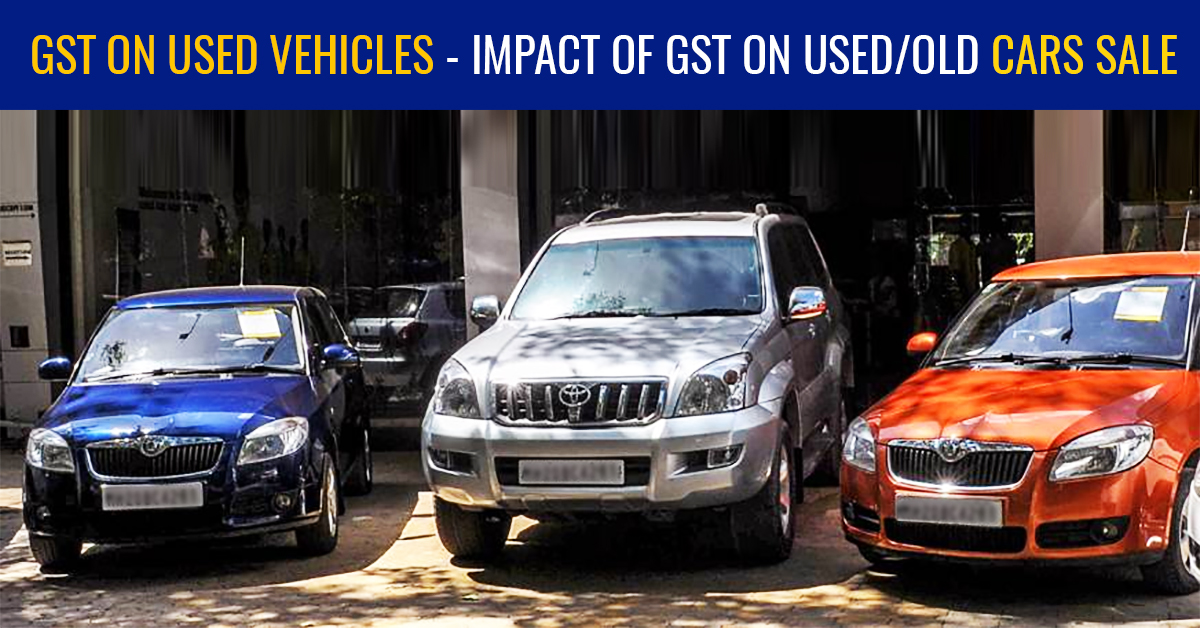The Goods and Services Tax (GST), which was launched in India in July 2017, is an indirect tax applicable to the supply of all the taxable goods and services. The sale of used and old vehicles in India is also considered a taxable supply under GST. Read this article to know the impact of GST rate on used vehicles/cars.
In addition to GST, a CESS tax is also applied to the sale of both old and new vehicles. The rate of cess may vary from 1% to 20% depending on the type of vehicle and sales conditions. However, in its 25th meeting, the GST council had ordered to remove cess from the supply of used vehicles. More on that later.
Before GST: Tax Rate on Used Vehicles
Before GST was implemented, the sales of old and used cars were applicable to a number of indirect taxes, including sales tax, VAT, excise duty and cess. The overall tax rate on the supply of used vehicles was in the range of 25-50% before GST.
After GST: Tax Rate on Used Cars
When GST was launched, all the existing indirect taxes were subsumed into one good & services tax.
At the time of the GST launch, the rate of GST on used cars was 28%, the same as the GST rate on the supply of new vehicles. Also, there was a cess of 15%, taking the effective tax rate to 43% on the supply of used/old cars.
GST on sale of Used Vehicles (Before 18/01/2018) – 28% (GST) + 15% (Cess)
However, the GST Council, in its 25th meeting held on January 18, 2018, decided to cut tax rates on a number of products & services, including the sale of old and used cars. Post that, GST rate on used vehicles sale was reduced and cess was removed from such supplies.
Current GST Rate on Supply of Used Vehicles:
|
Vehicle type |
Earlier GST rate |
New GST Rate |
Cess |
|
Medium, Large Cars and SUVs |
28% |
18% |
No |
|
Small Cars and Motor Vehicles |
28% |
12% |
No |
The reduced GST/cess rates on old car sales has turned out to be a boon for businesses in this industry. The sale and purchase of used cars are now more beneficial as compared to that of new cards, thanks to the lower GST rate. Big market players such as Maruti India Limited are expected to benefit the most from this, but individual buyers and dealers are also likely to experience a positive impact.
Recommended: GST Impact on Car Prices in India
GST Applicability to Old Vehicles/Cars
Now, an important point to be noted here is that GST does not apply to old cars the same way it does to new cars. GST is a value added tax and, therefore, it supplies only to the added value.
For example, a new car has far more value than an old car. So, GST would be applicable to the actual price of the new car. However, in the case of old or used cars, GST will be levied only to the added value, i.e. the profit margin and repairs/refinishing done on the vehicle (if any).
The value of a used/old vehicle for GST purpose is calculated in the following two ways:
In case if depreciation under income tax has already been availed, GST will be levied on the Margin of supply, which is the difference between consideration amount and Written Down value. If the margin is negative, no GST will be charged.
Also Read: GST Rate for Passenger Transport Services
In other cases, the margin will be the difference between the sale price and purchase price of the vehicle. If the margin is zero or negative, no GST will be charged.






